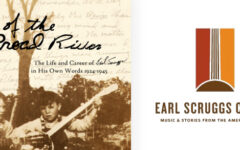 The Recording Academy, the organization that manages the annual Grammy Awards, generated some controversy earlier this month when they shuffled and reorganized some of the award categories for 2011. In total, the number of categories has been whittled down from 109 to just 78.
The Recording Academy, the organization that manages the annual Grammy Awards, generated some controversy earlier this month when they shuffled and reorganized some of the award categories for 2011. In total, the number of categories has been whittled down from 109 to just 78.
Of particular concern for bluegrass artists and labels is a change that eliminated the Best Country Instrumental Performance category, which has been won many times by bluegrass artists like Earl Scruggs, JD Crowe & The New South, Alison Krauss & Union Station, and Bryan Sutton to name a few.
Matt Munsey, mandolinist with Monroeville, and principal at the publicity and marketing outfit Blu Wav, has written a nice overview of this issue for The AcoustiCana Journal. He attended this week’s meeting of the Nashville chapter of the Academy, which was billed as Grammy 101, to hear what professional members of the organization – and its Nashville leadership had to say about this question, and others related to the slimmer category list.
Though his impression of the changes was quite negative last week, Matt came away from the meeting feeling that they were a net positive overall.
Here are his bullet points from the meeting on April 18:
I would like to offer my summary of the discussion at Nashville’s GRAMMY 101 meeting and offer a few suggestions to which I will follow up with a series of pieces that are GRAMMY related. You can follow them at The AcoustiCana Journal website under “Editorials.” Some of the topics will include the nomination process, and suggesting changes to the Awards & Nomination Committee.
- The Recording Academy takes the stand, as stated by Vice President of Awards, Bill Freimuth, that “every entry has a home.” Not one change in the structure eliminates any entry from being taken in the awards process. There is actually a category mapper that will allow you to find where your entry should be placed in the current configuration.
- The Recording Academy Awards has experienced a lot of changes. It began with only 28 Categories and grew to 109 in just over half a decade. They state that these additions have been “approached one Category at a time, without a comprehensive vision guiding this growth.” That is why the Recording Academy has decided to realign their entire awards process for uniformity within the Fields and to assure that the GRAMMY will remain a “rare and distinct honor” in the music community. It is music’s most prestigious and only peer-recognized award.
- The Awards & Nominations Committee spent over a year evaluating each Category to develop the new structure, but they continue to review changes every year. Vice President of Awards Bill Freimuth was clear in saying that if enough suggestions were brought to his attention for a Category change then he would submit it to the Awards & Nominations Committee for consideration the following year.
- There were a record amount of almost 20,000 entries to the 53rd GRAMMY awards. Despite that amount, some Categories suffer from a lack of entries. A new set of rules have been developed to maintain that a qualified pool of entries are available for each Category. The new rules stipulate that:
- Each Category must have a total of 40 entries or more.
- Should a Category fall in the range of 25 – 39 entries, only three recordings will be given nominations.
- Should a Category fall under 25 entries, the Category will not be presented that year and the entries will be moved to the next most logical Category.
- If a Category falls under 25 entries for three consecutive years, the Category will be eliminated.
You can read Matt’s full piece online.







